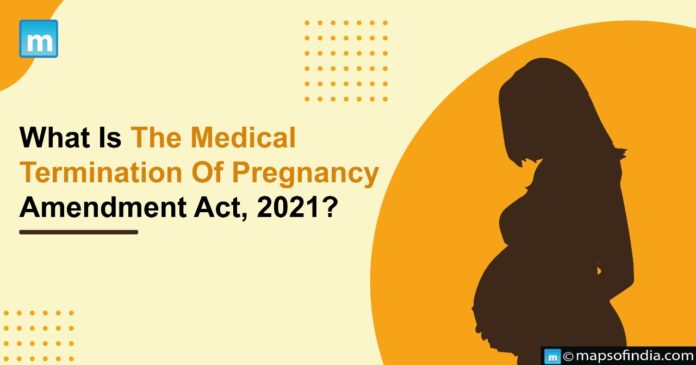The Medical Termination of Pregnancy Act 1971 (the “MTP Act”) was enacted due to advancements in medical expertise that made abortions simpler. India revised the MTP Act of 1971 in a historic effort to give everyone access to reproductive health services, significantly empowering women by offering them complete abortion treatment.
To ensure that everyone has access to comprehensive treatment, the new Medical Termination of Pregnancy (Amendment) Act 2021 broadens the availability of legal and safe abortion procedures on therapeutic, humanitarian, and social grounds.
Let’s discuss the key provisions of the MTP Act 2021:
Termination Resulting from the Device or Contraceptive Method Failing
- By the Act, a married woman may end her pregnancy up to 20 weeks if a contraceptive technique or device fails. For this reason, it also allows divorced women to end a pregnancy.
Opinion Required for Pregnancy Termination
- The Act requires the opinion of a single Registered Medical Practitioner (RMP) about the abortion of pregnancies with a gestational age of up to 20 weeks.
- Opinions of two RMPs are required to terminate pregnancies between the gestational period of 20 and 24 weeks.
- If there are significant foetal abnormalities, the State-level medical board’s approval is required before a pregnancy can be terminated after 24 weeks.
For Special Categories, the upper gestational limit was increased:
This amendment increases the maximum gestation period for some groups of women, including,
- Survivors of sexual assault
- Incest sufferers
- Widow
- Differently Abled women
- Minors
Confidentiality
- Except for a person permitted by active legislation, “the identity and other specific details of a woman whose pregnancy has been aborted should not be divulged.”
Importance of the Act
- The new law will help achieve Sustainable Development Goals (SDGs), namely 3 and 5, by assisting in eliminating avoidable maternal death.
- While SDGs 3.7 and 5.6 focus on ensuring everyone has access to sexual and reproductive health and rights, SDG 3.1 is concerned with lowering the rate of maternal death.
- With the modifications, more women will have access to safe abortion services, and those who need to stop a pregnancy will be treated with respect, autonomy, secrecy, and fairness.
Concerns
Various perspectives on termination
- One viewpoint holds that a pregnant woman’s decision to end the pregnancy is her choice and an element of her reproductive rights. In contrast, the opposing view has that the state must preserve life and should thus make provisions to ensure the safety of the foetus.
- Based on the health of the foetus and the risk to the expectant mother, various conditions and time restrictions are imposed by nations worldwide to legalise abortions.
Ineligible after 24 weeks
- The Act only permits abortions after 24 weeks if a Medical Board has identified significant foetal abnormalities.
- This suggests that the only option in a rape-related abortion case if the pregnancy is more than 24 weeks is to file a Writ Petition.
Doctors to conduct abortions
- According to the Act, only gynaecologists or obstetricians are authorised to conduct abortions.
- Pregnant women may still have trouble finding somewhere to get safe abortions since there is a 75% shortfall of these specialists in community health centres in remote areas.
The Central Government took a courageous stance while maintaining a balance with the various cultures, traditions, and schools of thought that our nation upholds; the reform still leaves women with several conditions, many of which become barriers to accessing safe abortion.




